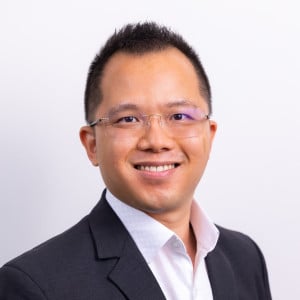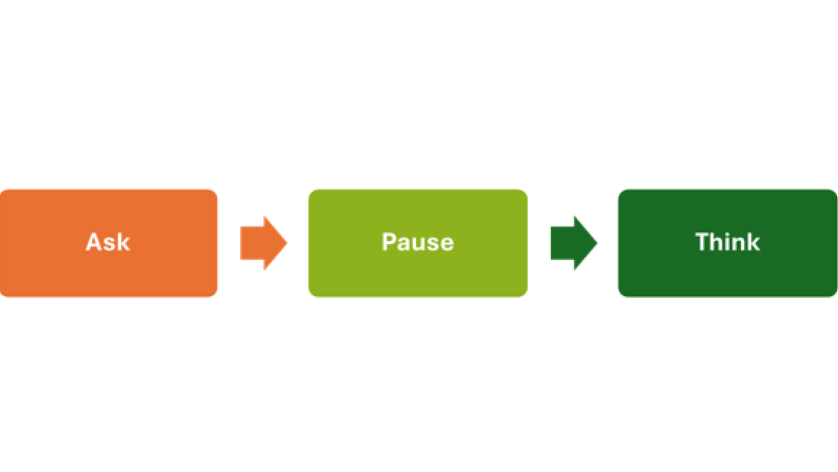
Chartered ABS responds to the DfE’s technical consultation on the International Student Levy
The Chartered ABS has submitted its response to the Department for Education’s technical consultation on the International Student Levy.
- Home
- / Insights
- / Knowledge sharing
- / Ask-Pause-Think: A pedagogical response to overreliance on generative AI in HE
Ask-Pause-Think: A pedagogical response to overreliance on generative AI in HE

Authors

Dr Andrew Woon CMBE
Senior Lecturer, School of Business and Management, Queen Mary University of London
Dr Andew Woon CMBE, Senior Lecturer, School of Business and Management, Queen Mary University of London, proposes a three-step ‘thinking’ framework that has countered an over reliance on generative AI.
Asking questions is a fundamental part of learning, just like the incessant "why" questions posed by toddlers, which play a crucial role in their cognitive development. However, many higher education students today seem to be losing this natural curiosity and the drive to explore new ideas in their learning.
One of my biggest pedagogical concerns as an educator regarding the use of generative AI is the risk of overreliance, which can diminish opportunities for students to develop their cognitive abilities. When students depend too heavily on AI tools, it has often led to surface learning, where the focus shifts to task completion rather than engaging with the learning process itself.
Making decisions in learning is a key component of cognitive development, as it a fundamental aspect of learning that shape individuals acquire knowledge, solve problems, and adapt to new situations. This skill is particularly important at tertiary education where students have to be equipped with adaptability and learn to make decisions in uncertain or novel situations.
However, overreliance on AI occurs when students bypass the thinking process and accept the AI-generated contents without question. The prevalence of overreliance on AI and instant solutions is increasingly evident in student behaviour, where the emphasis shifts from engaging with the learning process to simply obtaining answers.
To help my students counteract the tendency to over-rely on generative AI, I propose a simple thinking framework: Ask – Pause – Think.

1. Ask
This step does not focus on prompt writing, which is a crucial part of using generative AI effectively. Rather, it encourages students to question why generative AI provides certain answers: What are the sources? Are they biased or reliable?
The aim is to foster students’ curiosity and promote active engagement with AI-generated content. I introduce the Socratic Method to support critical inquiry through questioning, as I believe this is a vital step in developing learners’ understanding. By exploring and interrogating AI outputs, students can begin to close the gap in their thinking processes.
2. Pause
In an era of instant answers, we must learn to pause and digest the information we receive. I believe taking a moment before responding or seeking help would allow space for reflection, which is a crucial step in learning.
Pausing not only supports deeper understanding but also builds awareness of one’s own thinking and learning. Since deep learning takes time, pausing provides students with the opportunity to manage their cognitive processes and resist impulsive reliance on external tools.
3. Think
Lastly, students are encouraged to engage in reasoning and decision-making. This thinking process requires deliberate reflection before accepting AI-generated content, which in turn reinforces deeper learning.
This step promotes higher-order thinking, as students need to find evidence to support their arguments and justify their decisions when incorporating AI-generated content into their work.
Conclusion
As a daily user of generative AI tools, I believe this simple yet effective thinking framework has significantly enhanced my productivity at work. If every student adopts this approach, it could not only boost their productivity but also address concerns around the ethical use of generative AI, reduced critical thinking, and overreliance on such tools.
Therefore, as an educator, I always advocate for asking questions. I believe this simple act is not only the beginning of true learning but also the most powerful way we have to counteract overreliance on AI and foster genuine curiosity.
